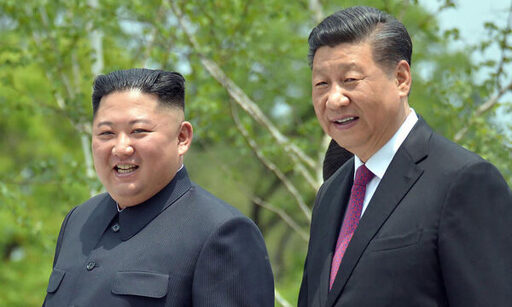Beijing risks entanglement in multiple international conflicts, including Russia’s invasion of Ukraine and the intensifying hostilities between Israel and Iran.
This involvement directly contradicts China’s Global Security Initiative (GSI), an international policing framework through which China’s leader, President Xi Jinping, seeks to position China as a diplomatic fulcrum, promoting peace and stability worldwide. This paradox reveals Beijing’s dilemma: can China maintain its self-proclaimed mediator role while aligning itself with states involved in ongoing conflicts?
As these partnerships become more of a liability than an asset, Beijing appears to be approaching a strategic crossroads. Will China recalibrate its relationships with these conflict-prone nations to preserve its diplomatic credibility, or will its aspirations as a global mediator be jeopardized by its ties to states that fuel regional destabilization?
North Korea’s Role in the Ukraine War
The deployment of North Korean soldiers to support the Russian war in Ukraine has sparked global concerns. While the US has turned to China to intervene and prevent further troop deployments by North Korea, the actions of Kim Jong-un and Vladimir Putin could complicate Beijing’s regional and international influence.
[…]
Yet, tighter Russian-North Korea cooperation benefits China. It ensures North Korea has an additional patron, which helps preserve the stability of its regime. As RUSI Fellow Samuel Ramani highlights, “China has also leveraged Russia’s diplomatic clout to get Tumen River access, which could tie the Sea of Japan to the Polar Silk Road. North Korea opposed Tumen access historically, and all China had to do for this was store Russia-bound North Korean arms in Zhejiang port.”
[…]
Nevertheless, complications keep arising. The influx of $1 billion in hard currency from artillery sales and additional hundreds of millions from remittances tied to North Korean troop deployments could reduce Pyongyang’s economic reliance on China – a crucial lever Beijing has traditionally used through calibrated adjustments in sanctions enforcement.
[…]
Additionally, South Korea might use this situation to bolster its alliances with the West by supplying munitions to Ukraine, which could complicate China’s diplomatic outreach to Seoul, particularly within the recently revitalized China-Japan-ROK trilateral dialogue framework. This could be further strained if South Korea begins to perceive China as complicit in North Korea’s arms transfers to Russia. Accusations of tacit Chinese complicity may well escalate if Beijing continues to resist US calls to apply pressure on both Moscow and Pyongyang – demands it previously opposed when countering Iranian and Houthi assertiveness in the Red Sea.
[…]


